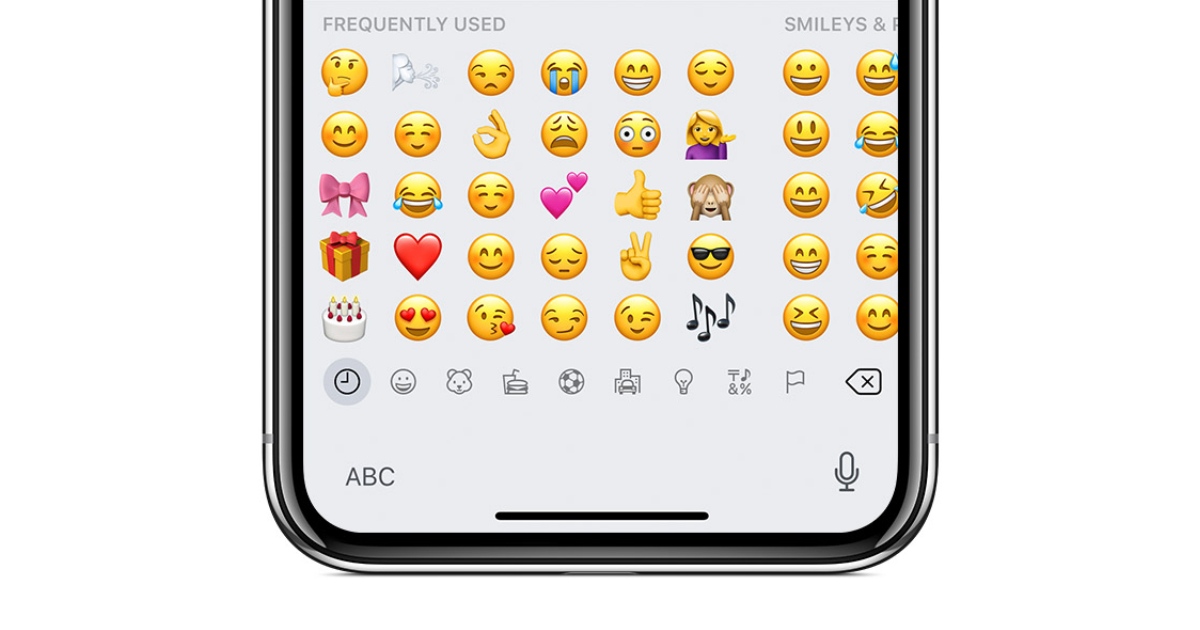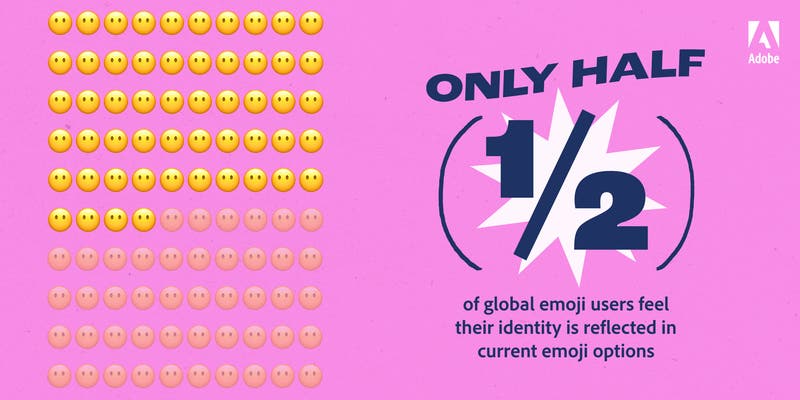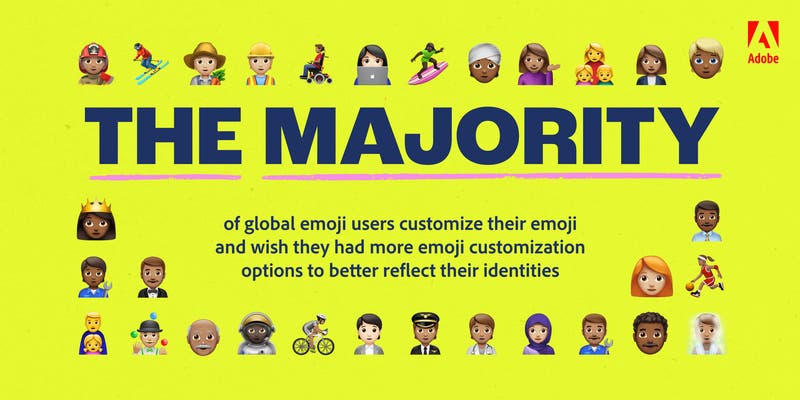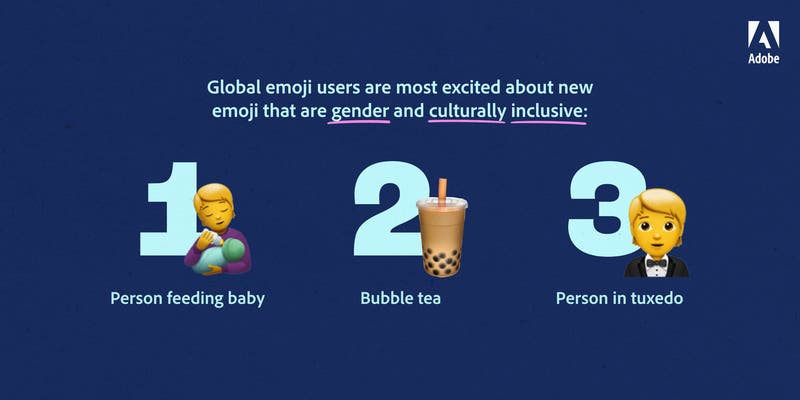Adobe has published a new Emoji Diversity and Inclusion Report. According to the study, an overwhelming majority of people around the globe want emojis to be more inclusive and culturally distinct so they can more accurately show communicate how they feel.
The survey also found that the majority of emoji users are that “inclusive emoji can help spark positive conversations about important cultural and societal issues,” and that the characters are an important tool for “creating unity, respect, and understanding of one another.”

Demand for more representative emoji is high, according to new Adobe study
As per Adobe’s Global Emoji Diversity & Inclusion Report, 83% of global emoji users want creators of the small ideograms used to communicate emotions to include more inclusive representation. The survey of 7,000 frequent emoji users from seven countries, including the United States, United Kingdom, Germany, Japan, France, Australia, and South Korea, revealed 54% of respondents felt their identity was satisfactorily reflected in current emoji options. Only 37% of emoji users with a disability said they felt represented by currently available emoji – some respondents with a disability would like to see expanded emoji that show more “helping objects”

“Culture was the No. 1 category of emoji that respondents wanted to see more inclusion in, followed closely by age and race / ethnicity,” Adobe typeface designer & font developer Paul Hunt wrote in a blog post on the study. “This is especially the case for respondents that speak more than one language, and for 41% of Gen Z, who want to see culture better reflected in emoji options.”
In the United States and the United Kingdom, 80% of Black emoji users, 78% of Latinx emoji users, and 71% of Asian emoji users expressed a want for more emoji options that more accurately reflect their identities. LGBTQ+ global emoji users said they wish they had more options, with 72% of the users feeling represented.

Almost half of the emoji users said people should not use emoji skin tone modifiers that do not match their racial identity and 48% said using the wrong skin tone is insensitive. It was also revealed that more hairstyles, clothing accessories, body types and eye color could help users feel better represented.
Researchers also found that the need for more inclusive emojis varies based on age with 74% of Gen Zers expressing the desire for emoji customization options that better reflect their personal identities.
“Personally, I found the results of this year’s survey surprising, particularly with emoji users of all ages responding that greater options for representations are needed to help communicate important personal concerns such as localized cultural touchstones, gender / sexual identities, and the spectrum of users’ abilities,” Hunt said.




2 comments